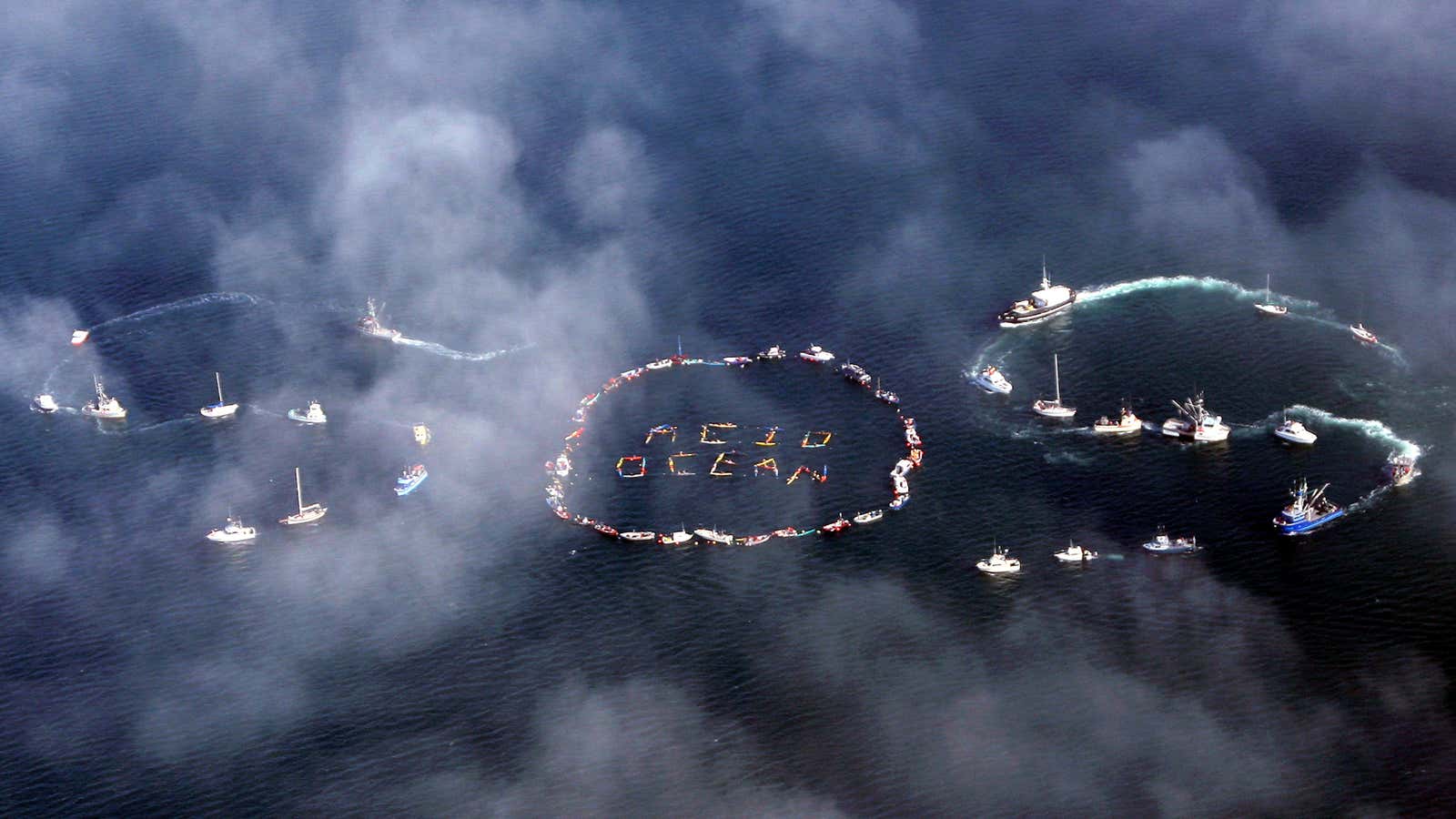Ocean scientists fear that climate change is dramatically shifting the chemical balance of the ocean in ways that will kill fish, molluscs and coral, harming 540 million people who depend on fisheries for their livelihoods—and anyone who likes a cheap oyster.
Oceanographers gathered for a summit in Monterey, California, last month, producing a new report warning policymakers of the need to act.
The world’s oceans are basically a giant carbon sink, absorbing about a quarter of carbon dioxide emissions. Since the industrial revolution, the ocean has become increasingly acidic due to increased carbon emissions—and at a faster pace than ever before—but that saturation is making the ocean less effective at taking carbon out of the air. By 2100, they expect the ocean will be 170% more acidic than it was before the industrial revolution. That change, scientists expect, will increase the speed of climate change going forward.
In the meantime, it will harm ocean life, particularly organisms that rely on hard shells or exo-skeletons like coral, molluscs, and crabs. The scientists are confident that the impact will lead to significant economic losses within the century, but the magnitude is less clear. One estimate of the cost to mollusc fisheries alone is $130 billion. Reductions in coral reefs, the heart of complex ocean ecosystems, are also strongly indicated, and while the economic impact is hard to specify, it could cost as much as $1 trillion within the century.
As the explosion in costly and terrifying jellyfish blooms reminds us, it’s both hard to predict how the ocean ecosystem will react to changes brought about by human activity, and hard to turn back those changes once they are in place. Some species may be able to adapt to a more acidic future; others may face local extinction in especially acidic waters. But it might be better not to find out.
